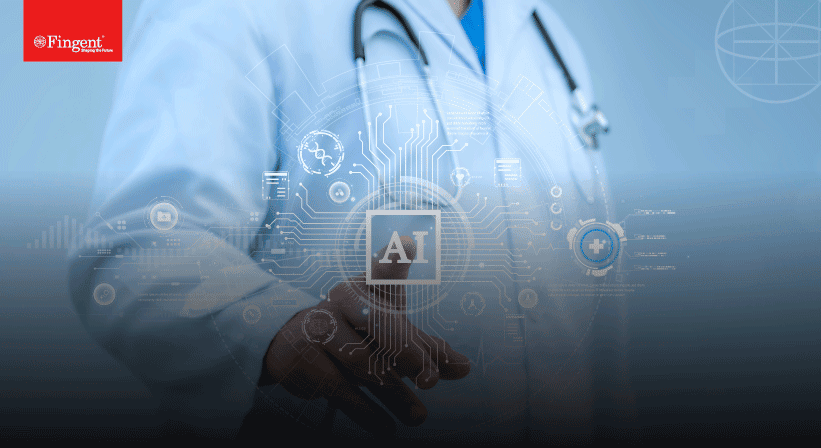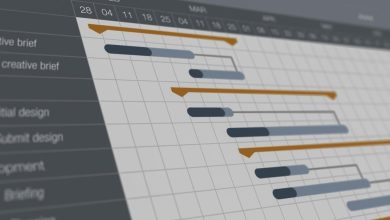
Artificial Intelligence is a multi-talented assistant and has proven its worth in the healthcare industry. Healthcare organizations have found innumerable ways to use AI, from record maintenance to patient assistance. It has completely reshaped how doctors diagnose, treat, and monitor their patients. It is also capable of drastically improving research methods, which leads to unmatched accuracy in diagnoses. By integrating AI into hospital settings and clinics, healthcare systems can potentially become smarter, faster, and more efficient worldwide. This blog will help you explore the immense possibilities of AI in healthcare!
How Is AI Used in Healthcare?
Healthcare AI, valued at $11 billion in 2021, is expected to be worth $187 billion in 2030.
This massive increase will mean that we will continue to see exponential growth in how medical providers and organizations in the healthcare industry operate. So, how are they using this power tool? Here are some ways.
1. Easing Administrative Workflow
Artificial Intelligence can process and analyze extensive amounts of clinical documentation within a few minutes. This enables professionals to spot disease markers and trends that could be overlooked with manual analysis. AI can automate mundane tasks such as data entry, claim processing, and appointment scheduling, freeing up time to focus more on patient care and the management cycle. Artificial intelligence also eradicates the risk of human error by offering a faster way to analyze and review health records, medical imaging, and test results.
2. Disease Detection
Machine learning (ML) is an area of AI that reads patterns and allows a machine to learn and apply the learned experience to similar scenarios. It enables physicians, researchers, and patients to identify impending diseases. Researchers and practitioners claim that machine-learning-based disease diagnosis is inexpensive and time-efficient. Furthermore, a current study proves that these diagnoses have an accuracy rate of 90%. Diseases like dementia, heart failure, breast cancer, and pneumonia can be identified with ML. The emergence of this fascinating technology in the diagnosis domain illustrates the utility of AI in medical fields.
3. Automate Documentation, Store, and Organize Health Data
Documentation and organization processes are monotonous. They can be very tiresome and boring, leading to human errors. This process can be automated by Natural Language Processing (NLP), which interprets and uses human language to perform tasks. NLP can improve patient care with accurate diagnosis, streamlined clinical procedures, and customized services. It can also help analyze medical records and suggest improved treatment methods. The most common use of NLP in healthcare is to analyze and classify medical records.
4. Accelerate Drug Discovery and Development
AI assistance to the pharmaceutical industry can improve the overall life cycle of products and make great leaps in medical research. It can be integrated into various tasks, such as drug discovery, drug repurposing, clinical trials, and product management. This reduces the workload on human employees while simultaneously achieving targets in a short period of time. Artificial intelligence can identify hit-and-lead compounds in drug research. This allows it to provide quicker verification of the drug target and optimize the overall drug structure.
5. Medical Inventory Auditing
Inventory management is a strenuous task that requires close attention and constant supervision. However, when you integrate AI into inventory management, you can curate a seamless flow of products.
Computer vision can help in this regard. It is a type of AI that can analyze images and perform tasks that replicate human behavior. With computer vision, medical institutions can automate their auditing process and reduce errors in shipments of surgical supplies.
Artificial intelligence can also assist medical organizations with product evaluation, prioritizing inventory tasks, and allocating inventory information across the organization network. AI in the medical industry can also automate small tasks such as the transcription of bills and the recommendation of products based on a surgeon’s order history. Even this simple automation can bring overall accuracy to the functioning of inventory.
Virtual Reality Is Reshaping the Future of Medical Device Training
Explore Now!
6. Virtual Nursing Assistants
A virtual assistant is a manifestation of AI that provides 24/7 support and monitoring for patients. It consists of AI-driven chatbots that further enhance patient engagement and adherence to treatment schedules. The overall market for virtual healthcare assistants is growing at a CAFR of 30% from 2023 to 2033. This says it all!
Surgical robots are another brilliant invention powered by artificial intelligence. They can perform minor surgeries with a high level of proficiency. These robots can also collect patients’ previous medical records and make appropriate suggestions to surgeons. Medical researchers and scientists are now striving to create an AI robot fully capable of performing complex surgeries.
7. Personalized Fitness Coach
We have all encountered health and fitness monitors, such as smartwatches and apps that can track and analyze our medical histories. These monitors are also powered by artificial intelligence. They store real-time data sets, and they will alert the user when they recognize a suspicious pattern.
AI can also transform limited customer service into a highly scalable, personal service that provides multifaceted recommendations through real-time conversational AI. On a larger scale, AI solutions, such as data applications, ML algorithms, and deep learning algorithms, can also help healthcare professionals. They can analyze large amounts of data and offer suggestions before professionals make decisions.
8. Patient Prioritization System
According to a recent study, 83% of patients report poor communication as the worst part of their experience in healthcare centers. This illustrates the desperate need for a clearer form of communication between patients and healthcare service providers. AI technologies like natural language processing, predictive analytics, and speech recognition can monumentally bridge this gap.
Clinical AI is also created to focus specifically on patient care. It uses various subtypes of AI to improve patient treatment. Predictive analytics is another helpful area of AI. It predicts potential health complications by analyzing patterns in a patient’s medical history and current health data. Since this AI takes a proactive approach, it ultimately leads to better patient outcomes and reduced healthcare expenditures.
9. Less-invasive Surgeries
AI-enabled applications can assist in the development of advanced guidance and navigation systems. They improve the accuracy and precision of surgical procedures. They can also be used to work around sensitive organs and tissues. They can help reduce blood loss, infection risk, and post-surgery pain. AI-powered image analysis tools can also be used to spot surgical instruments and structures within the body. It can analyze past surgeries, allowing the surgeon to be well-prepared beforehand. This creates a more personalized approach to surgical planning and execution.
A Quick Guide to Custom Healthcare Software Development
Read Now!
What Are the Top Benefits of Using AI in Healthcare?
The benefits of AI in healthcare are manifold. However, its application has reaped the most benefits in fraud prevention, healthcare diagnosis, and preventive care. Here are more details:
1. Fraud Prevention
Integrating AI can help recognize suspicious patterns in insurance claims. Sometimes, people will bill for costly services or procedures that are not performed, or they will undertake unnecessary tests that take advantage of insurance payments. Another famous type of false claim is unbundling. This is when people provide billing for individual steps of a procedure rather than the procedure as a whole. These scams can be detected by predictive analytics.
2. Increased Efficiency in Healthcare Diagnoses
A study in Harvard’s School of Public Health stated that using AI to derive diagnoses may reduce treatment costs by up to 50% and simultaneously improve health outcomes by 40%. Other studies suggest that deep learning AI technology can accurately predict breast and skin cancer, even better than experienced doctors.
3. Better Health Monitoring and Preventive Care
AI can help providers gather information from multiple wearables and monitoring devices. It can then be stored and analyzed to provide data-driven insights from many people. With AI-integrated health monitors, patients and caregivers can communicate better. These monitors can be wearables, sensors, or telehealth. They are used essentially by patients to identify symptoms early on and provide timely changes. They come in two distinct forms: AI chatbots, virtual assistants, and ambient/intelligent care.
What Are the Types of AI Used in Healthcare?
Many forms of AI have been successfully implemented in the healthcare industry. Some of these are listed below:
1. Machine Learning
Machine learning algorithms can identify patterns and form predictions by processing clinical data. This form of AI helps analyze patient records, discover new therapies, and perform medical imaging. Hence, it makes life easier for healthcare professionals and reduces costs for the patient. ML can precisely diagnose diseases, personalize treatments, and identify any changes in vital signs.
2. Deep Learning
Deep learning is a subset of AI used for tasks like speech recognition through natural language processing. This representation-based learning method is obtained by composing simple and nonlinear molecules from a lower level into a representation at a higher, more abstract level. Deep learning models are generally integrated with computer vision, speech recognition, and natural language processing to get the best results.
3. Natural Language Processing
Natural language processing (NLP) enhances patient care by improving diagnosis accuracy, streamlining clinical processes, and providing customized services. NLP can accurately diagnose illnesses by extracting important data from medical records. It can also determine the appropriate treatments and medications for each patient. This form of AI has become a powerful weapon in the modern healthcare industry.
4. Generative AI
Generative AI is a part of machine learning technology. It is trained with old data, and when commanded, it provides new data similar to the legacy data. It is used primarily for image and speech synthesis. Generative AI has untapped potential. It has the power to automate entire systems, enhance clinical decision-making processes, and even administrative processes. Generative AI shows great potential despite being scarcely implemented.
Explore What AI Can Do For Your Organization
What Is the Future of AI in Healthcare?
AI in the healthcare market was worth over 11 billion U.S. dollars in 2021. The next prediction is that this market will outdo itself and reach around 188 billion U.S. dollars by 2030. This elucidates the drastic impact that AI has on the healthcare industry.
Artificial intelligence offers us many opportunities to help reduce human error and assist medical professionals. It holds heavy promises of enhancing patient experience, tightening safety, and reducing costs associated with healthcare services. As these tools and technologies continue to develop, the potential to use AI will exponentially boom.
Future AI tools will have the ability to automate or augment the workload and further free up humans to spend more time on other important tasks. Deep learning AI may progress to detect diseases faster, provide better-customized treatment plans, and even completely automate certain processes, such as drug discovery or diagnostics. With such limitless potential, artificial intelligence is sure to illustrate a future filled with advancements, enhanced health outcomes, and optimized patient experiences.
How Can Fingent Help Leverage AI for Better Healthcare Services?
Fingent is a top-notch technology solution provider with around 800+ successful projects. We have loyal clients across four continents. With our custom software development experts, you can develop intricate, truly innovative, AI-powered, custom healthcare software applications. These applications will give you a competitive advantage, ample time-to-market, ROI, and clinical precision.
We have positive feedback and strong bonds with an eminent list of healthcare clients, including the NHS, Novita Healthcare, Mundipharma, and Casenet, LLC, among others. As the world progresses forward with artificial intelligence, it is time for you to choose the right technological partner for this journey. Contact our experts today to discuss your AI project now!







